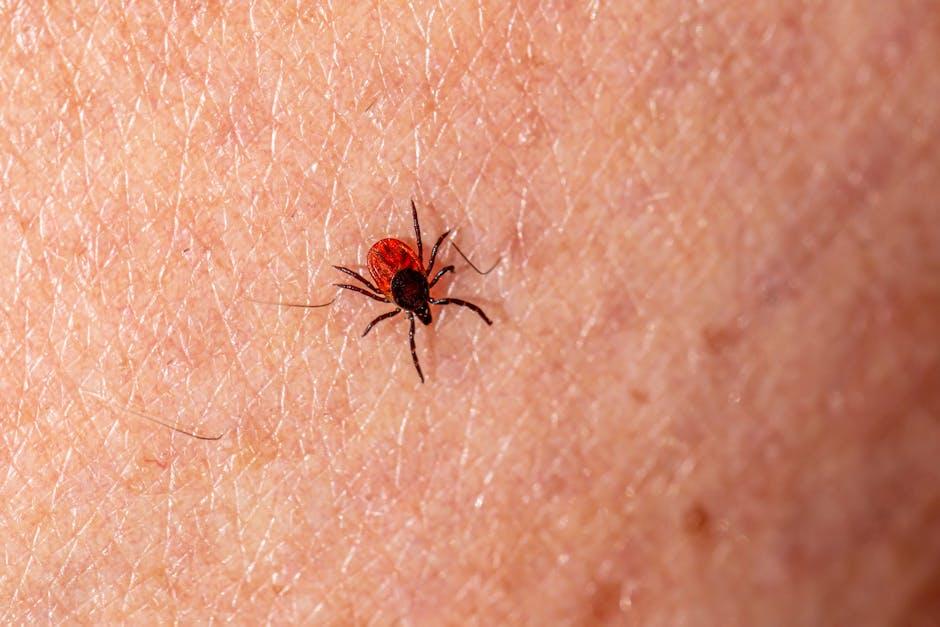In today’s world, where the hustle and bustle of daily life often leaves us yearning for simplicity and natural solutions, maintaining a healthy home environment is more important than ever. One area that often requires our attention is the prevention of parasites, those unwelcome guests that can cause discomfort and health issues for both humans and pets alike. While harsh chemicals have long been the go-to solution, many of us are seeking gentler, more sustainable ways to protect our homes and loved ones. In this guide, we’ll explore effective and natural methods to prevent parasites, allowing you to create a safe and nurturing environment without compromising on health or peace of mind. Whether you’re a seasoned natural living enthusiast or just beginning your journey, these tips will empower you to keep parasites at bay in a way that aligns with your values and lifestyle.
Understanding Natural Alternatives to Chemical Treatments
When it comes to protecting your home and garden from parasites, embracing nature’s solutions can be both effective and gentle on the environment. Many natural remedies can serve as formidable barriers against these unwelcome guests without resorting to harsh chemicals. Here are some strategies you can incorporate into your pest prevention routine:
- Diatomaceous Earth: This fine powder, made from fossilized aquatic organisms, can be sprinkled around the home and garden. It works by dehydrating parasites, effectively controlling their population.
- Essential Oils: Oils such as peppermint, eucalyptus, and tea tree have natural repelling properties. Mix a few drops with water and use as a spray to deter pests from entering your living spaces.
- Beneficial Nematodes: These microscopic organisms can be introduced to your soil to target and eliminate parasites like fleas and grubs, creating a healthier garden ecosystem.
- Herbal Barriers: Planting herbs such as lavender, rosemary, and basil around your home or garden can naturally repel a variety of pests due to their strong scents.
Incorporating these methods not only helps in maintaining a pest-free environment but also supports ecological balance. By understanding and utilizing these natural alternatives, you are taking a step towards a more sustainable approach to pest management.

Creating a Parasite-Resistant Environment in Your Home
Maintaining a home that naturally deters parasites begins with a few thoughtful practices that prioritize cleanliness and nature-friendly solutions. Regular cleaning routines are essential; vacuuming carpets and rugs frequently can help remove eggs and larvae before they develop into pests. Don’t forget to wash pet bedding regularly and keep your pets groomed to reduce the risk of fleas and ticks.
Incorporating natural deterrents into your environment is another effective strategy. Consider using diatomaceous earth around your home’s perimeter; it’s a natural substance that can deter crawling insects. Essential oils like lavender, eucalyptus, and peppermint not only make your home smell delightful but also act as natural repellents. Here are a few additional tips to enhance your home’s defense against parasites:
- Seal entry points: Check and repair any gaps in windows, doors, and walls to prevent pests from entering.
- Maintain a dry environment: Parasites thrive in damp areas, so fix leaks and use dehumidifiers in moisture-prone rooms.
- Encourage beneficial wildlife: Birds and bats can help control insect populations, so consider installing birdhouses or bat boxes nearby.
Incorporating Herbal Remedies into Your Routine
Harnessing the power of nature can be a gentle yet effective way to protect yourself from unwanted guests. Integrating herbal remedies into your daily routine can bolster your defenses without the need for harsh chemicals. Here are some herbs known for their natural antiparasitic properties:
- Garlic: This potent herb is not only a culinary favorite but also a natural deterrent for many parasites. Its active compound, allicin, is known for its antimicrobial properties.
- Wormwood: Often used in traditional medicine, wormwood is renowned for its ability to expel parasitic worms and is a common ingredient in herbal parasite cleanses.
- Clove: The essential oil of clove contains eugenol, which is effective in killing parasite eggs, thus breaking the life cycle of these unwelcome intruders.
- Pumpkin Seeds: These seeds are not just a tasty snack but also contain cucurbitacin, a compound that paralyzes parasites, making them easier to eliminate from the body.
Incorporate these herbs into your diet through teas, tinctures, or supplements. Always ensure to consult with a healthcare provider before starting any new herbal regimen, especially if you are pregnant, nursing, or have underlying health conditions.

Boosting Your Pets Immune System Naturally
Ensuring your furry friend’s immune system is strong can help them fend off parasites naturally. A well-rounded diet rich in essential nutrients is a great starting point. Include foods high in antioxidants, such as blueberries and spinach, to combat free radicals and support overall health. Omega-3 fatty acids, found in fish oil, can reduce inflammation and bolster your pet’s immune response. Additionally, consider incorporating probiotics into their diet to maintain a healthy gut flora, which plays a crucial role in their immune defense.
- Garlic: In small, controlled amounts, garlic can be a natural deterrent for parasites.
- Apple Cider Vinegar: Adding a teaspoon to your pet’s water bowl can create an inhospitable environment for parasites.
- Herbal Supplements: Herbs like neem and wormwood can be effective in preventing infestations.
Regular grooming and a clean environment are also key. Brushing your pet not only keeps their coat healthy but also allows you to check for any signs of parasites. Washing their bedding frequently and vacuuming your home can reduce the risk of an infestation. By taking these gentle, natural steps, you can help your pet thrive without resorting to harsh chemicals.
















